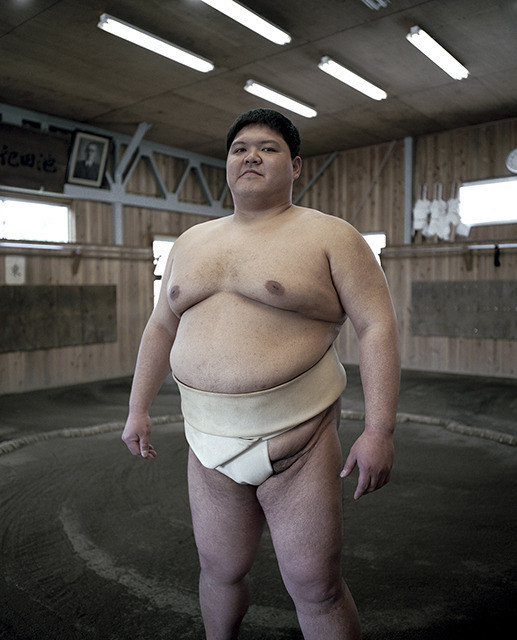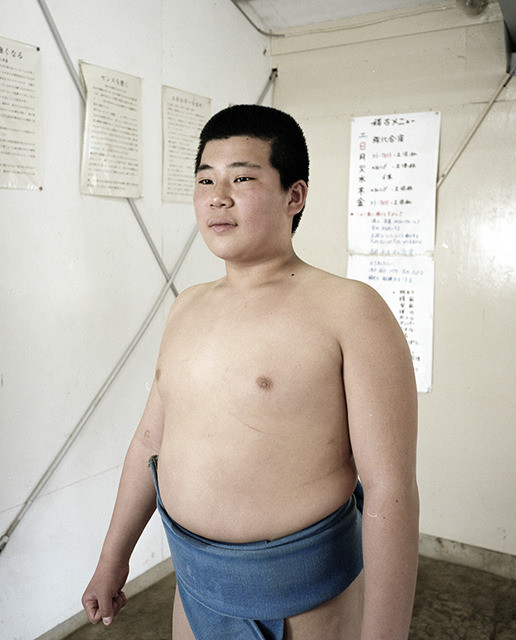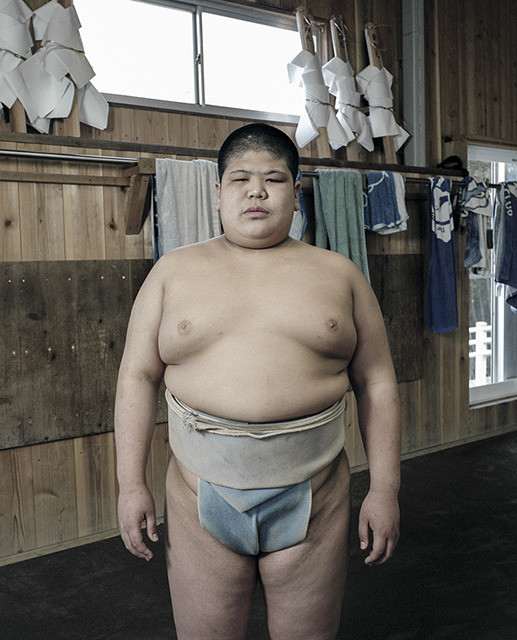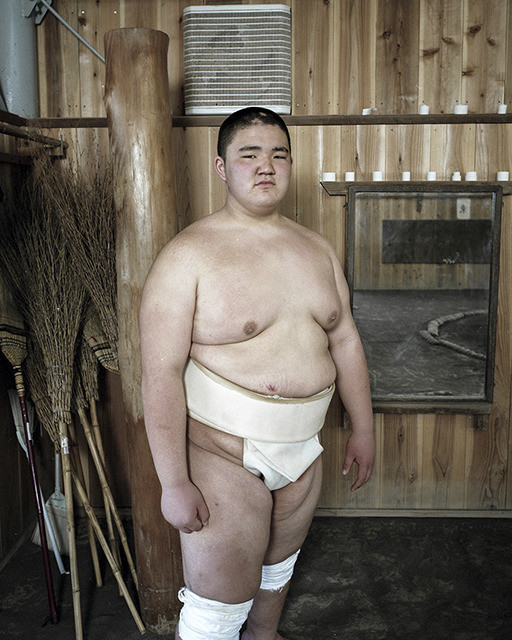Earlier this year I traveled to Nou, a fishing town on the north coast of Japan, to visit a sumo training academy. The country’s unofficial national sport dates back over 2,000 years. Rigorous daily training must be upheld in order to prepare the fighters for bouts that can be won or lost in seconds, and this school is where that regime starts for the sport’s future champions.I arrived in Nou on the first day of the school year and was introduced to the students, some of whom were as young as 12, who had moved out of their family homes to be there. I joined the group at 7 AM for their first walk to the training dohyō (the ring where the wrestling takes place), a pretty anonymous building surrounded by the beautiful snow-capped mountains of the Japanese Alps.
Advertisement

For the next hour or so the new students joked around, helped each other fit into their mawashis (loincloths), and reminded themselves of the words used in the recitals during training and bouts. Once they entered the dohyō, bowing out of respect to the gods, the smiles turned into frowns of concentration. Then began a gruelling three-hour training session, each student pushing his body as far as it could go.These children and teenagers eat, sleep, train, and study together 24 hours a day, with sumo training and preparation taking up their mornings and other studies their afternoons. They will remain at this school for six years, preparing their minds and building their bodies in the hope of becoming professional sumo champions.See more of Daniel's work on his website.Follow Daniel Ali on Twitter.



